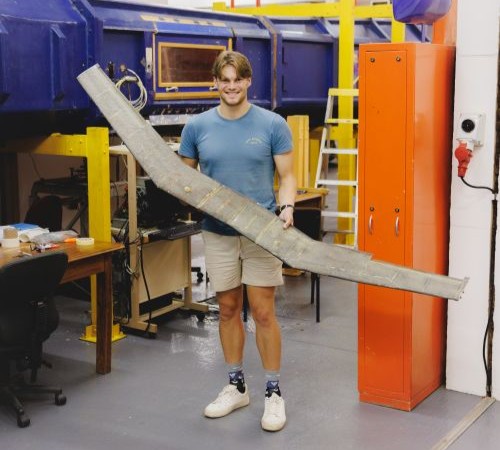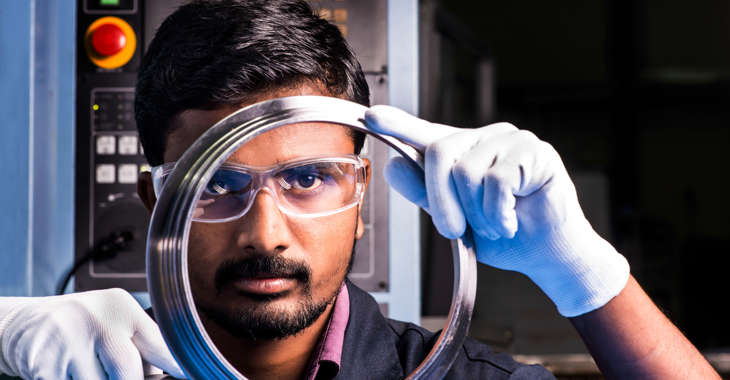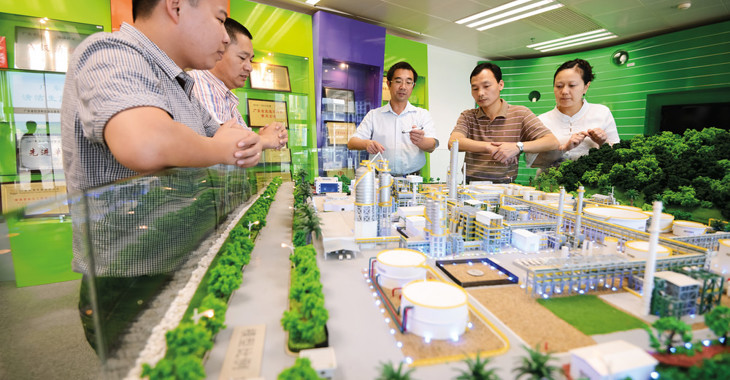
About Transforming Systems through Partnership
2025 marks 10 years of Transforming Systems through Partnership (TSP), which evolved from the Industry–Academia Partnerships Programme (IAPP).
Since its launch, TSP has supported 294 projects, fostering collaboration between universities and industry in the UK and 9 partner countries. This includes current partners Jordan, India, Thailand, and South Africa.
These projects have contributed to all 17 of the UN’s Sustainable Development Goals. Awardees consistently value the programme — with 82% rating it as a very good or excellent use of their time. As we celebrate 10 years of impactful international collaboration, we look forward to the next decade of catalysing locally led partnerships that drive lasting change.
With grants averaging £50,000, TSP addresses sustainable development goals through challenge-led research and innovation. Recognising that solving today’s most pressing development and sustainability challenges requires collaboration among academics, industry, government, and the public, the TSP programme builds trust, designs appropriate solutions, and scales their uptake. It achieves this by catalysing partnerships across universities, large companies, SMEs, start-ups, and civil society, effectively addressing the sustainable development goals.
TSP programme objectives
The Transforming Systems through Partnership (TSP) programme has three core objectives:
- Promote challenge-led research and innovation that uses engineering to address sustainable challenges in partner countries, the UK and globally;
- Establish partnerships in course design and delivery that equip the next generation with skills to address sustainable development challenges;
- Facilitate collaboration and knowledge exchange that creates a strong evidence base for building better systems for the world we want to live in.
Over the last 10 years, TSP has provided the catalyst for many impactful projects that have gone on to create real change, such as:
- Providing renewable energy access through an energy trading pilot for an underserved neighbourhood in Colombia, and creating the country's first 'energy community';
- Developing sustainable, affordable housing models in South Africa and working with the government to scale these;
- Informing the first offshore decommissioning policies in Thailand through cutting-edge research;
- Piloting locally made affordable 3d printed customisable dental implants in Jordan, contributing to the country's manufacturing and health sectors.
Find out more about how TSP is empowering locally led solutions to complex development challenges. The video showcases the power of partnerships, innovation, and long-term collaboration in driving real, sustainable change.
Activities
The core activities within the TSP programme are focused around four main strands:
- Research and innovation
- Teaching and learning
- Community engagement
- Programme-level activities implemented by the Academy
Awardee support
Recognising that lasting impact requires more than funding, TSP supports awardees to connect, learn and grow together. Through a range of community-building activities, we aim to strengthen peer networks, support knowledge exchange, and create space for collaboration. Key elements of this approach include:
Regular communication and updates
- Delivered through bi-annual catchups and active WhatsApp groups, helping to maintain momentum and encourage ongoing dialogue between awardees.
In-country events, recent examples include:
- Delhi, India (February 2024)
- Bangkok, Thailand (November 2024)
Peer learning and expert-led sessions
- Opportunities to learn directly from peers, ask thought-provoking questions, and explore practical challenges in real time.
Skills development based on awardee feedback, including:
- Intellectual Property protection
- Communication and stakeholder management
- Securing future funding
Multi-level impacts
Through TSP, we support change at every level, from individual capacity to national ecosystems. At the individual level, participants gain vital skills in communication, innovation, collaboration, and project management, alongside access to cutting-edge scientific knowledge, from technologies to detect water pollutants to methods for industrial waste recovery and battery optimisation. They also build diverse professional networks that span disciplines, sectors, and borders.
At the organisational level, participation strengthens long-term partnerships between academic and industry bodies, shapes more relevant higher education curricula, in fields like solar energy, waste management and AI, and unlocks new funding opportunities. The programme also leads to the development of new technologies, prototypes, and patents.
At the ecosystem level, TSP projects contribute directly to tackling global challenges including climate change, clean energy, and access to healthcare. By supporting cross-sectoral and international collaboration, the programme helps strengthen national research and innovation ecosystems, improve knowledge transfer mechanisms, and influence policy — from affordable housing to engineering education.
Current themes
- Clean energy
- Affordable healthcare
Past themes
We have previously funded projects in the following areas:
- Clean energy
- Education, gender & inequality
- Digital revolution for sustainable development
- Health & wellbeing
- Sustainable food, land, water & oceans
- Sustainable cities and communities
You can view case studies for each of these areas as well as further case studies below.

Case studies

